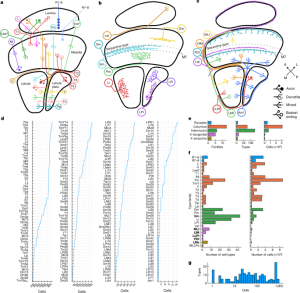Israel sends troops to Lebanon as it vows to retaliate against Iran
The War in Syria, Iraq and Syria: U.S. Response to the Israel War and Implications for the War in the Middle East
Lloyd Austin spoke with Israel’s Defense Minister about the repercussions of a strike against Israel. In Iraq and Syria, the conflict between Israel and Iran-backed groups is creating a threat to U.S. troops. Defense secretary Austin supports Israel dismantling Hezbollah’s infrastructure so it doesn’t threaten Israeli border towns. He said that Israel needs to pivot to diplomacy.
In Yemen, the Israelis sent a message to Iran that it was within Israel’s reach, according to Israeli security analysts.
And now Israel says it is running a “limited” incursion of “targeted ground raids” in southern Lebanon aimed at Hezbollah militants that pose a threat to communities in northern Israel. The Israeli government says about 63,000 people are displaced due to Hezbollah rocket fire.
On Monday, Hezbollah’s deputy leader, Naim Kassem, said in a televised address that “the resistance forces are ready for a ground engagement.” Hezbollah leaders and members have been attacked by Israel in recent weeks.
The operation involves ground raids on Hezbollah targets and infrastructure in southern Lebanon. The Israeli air force and artillery troops are providing back up to the ground forces.
The military of Israel is fighting on multiple fronts. There have been many deaths in Israel’s operations in Gaza. Israel deployed dozens of fighter jets hundreds of miles away from Yemen, where it said it bombed power plants and a seaport used to import oil for military purposes. Four people were killed in the Israeli strikes and dozens were wounded, according to the Houthis.
Israel promised a “painful” response after Iran fired nearly 200 missiles at Israel on Tuesday, and now it is sending more troops into southern Lebanon to fight Hezbollah.
The US supports the incursion, but warns Israel about doing too much, according to a White House official. The ambassador told Israeli public radio that the U.S. does not restrict the duration of the incursion, but is concerned about the situation in the region.
“We definitely keep saying violence cannot stop violence. We need diplomacy to stop the violence. Lebanon should not turn into another Gaza.
“This is not an incursion, this is an invasion,” Najat Aoun Saliba, a Lebanese member of parliament, told NPR. “We’ve been invaded by another country and we have to call on the international community to call it as such.”
The conflict has entered a new phase after Israel killed the Hezbollah leader, as well as other top officials.
An Israeli military spokesman warned residents of more villages to evacuate on social media. Any civilian near Hezbollah fighters, facilities or weapons risks their lives, and for your safety, you must leave your homes immediately.
Riza called on the global community to support and ensure protection of civilians as violence escalates. Humanitarians can leave the population of a country without the support they need if the resources aren’t enough.
The UN needs to provide emergency funding for civilians impacted by the conflict because Lebanon is facing one of the most dangerous phases of its history according to the country’s interim prime minister.
The Israeli-Lebanese Connection in the Age of War: A Cold War? The Iran Crisis After a Recent Retaliatory Attack
The international community is being called on to stop Israel from entering Lebanon after Israeli troops crossed into southern Lebanon.
“Israel has much more free rein in the Iranian context than in April, as there’s essentially no more threat that Hezbollah would join,” Mr. Citrinowicz said.
In April, Israel was worried that issuing too intense of a response would prompt Iran to order its proxy militias — particularly Hezbollah in Lebanon — to retaliate extensively.
Danny Citrinowicz, who specialized in Iran and is a retired Israeli Intelligence officer, said Israel has weakened Hezbollah after launching a bombing campaign that killed its leader and other commanders.
The Biden administration may urge Israel to curb its response. But with American elections fast approaching, U.S. officials were likely to have less influence than they did in April, Mr. Citrinowicz said, when they similarly pressed to avoid an attack that could escalate the conflict.
Mr. Citrinowicz said that this was an escalation that was difficult to anticipate. Iran will almost certainly respond to Israel’s action. We appear to be at the start of a confrontation.
But after Iran fired about 180 missiles in an attack that went on for roughly half an hour, Israel’s challenge was not whether to attack Iran, but how powerfully to respond, said Yaakov Amidror, a retired major general who served as Prime Minister Benjamin Netanyahu’s national security adviser.
Naftali Bennett, a former Israeli prime minister, wrote on social media that Israel was facing “the biggest opportunity in the past 50 years” to change the face of the region.
“We must act now to destroy its nuclear project, destroy their major energy facilities and critically hit this terrorist regime,” Mr. Bennett said of Iran. It is now the time to aim for the head of the severely wounded sea creature.
Iran’s Revolutionary Guard said late Tuesday that the missile attack was in response to several recent killings, including the assassination of Hezbollah’s leader Hassan Nasrallah late Friday in Beirut; the death of Hamas leader Ismail Haniyeh, who was killed in Tehran in July in a strike widely assumed to be carried out by Israel; and an Iranian commander.
The only verified death from the Iranian attack was in the Israeli-occupied West Bank where a 38 year old Palestinian died when a missile hit the city of Jericho.
According to The Associated Press, Hezbollah claimed to have killed many Israeli soldiers and the Israeli military said one of their soldiers was dead in Lebanon.
The Israeli military said it is deploying more soldiers and an armored tank brigade to assist in what it called a “limited, localized” ground offensive against the Iran-backed militant group Hezbollah in Lebanon.

